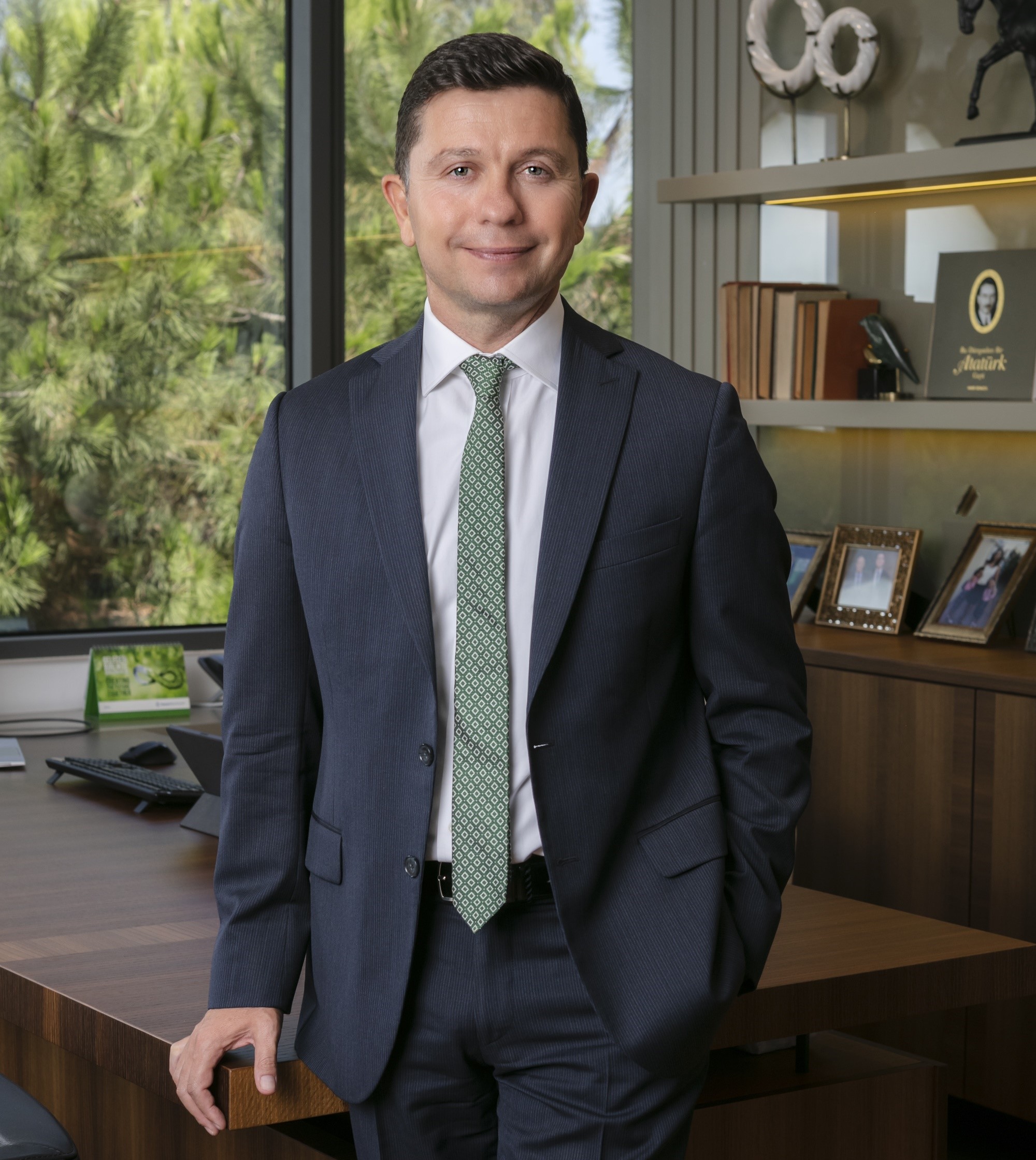

Assan Alüminyum, a subsidiary of Kibar Holding, is not only one of the leading flat-rolled aluminium producers in the world but also one of the two largest aluminium foil manufacturers in Europe. Its renewable energy production facility in Manavgat produces clean energy equivalent to the annual electrical energy consumption of its production facilities in Tuzla and Dilovasi. The company has more than 1700 employees. As a major global player, the company continues to make sustainable investment plans, expanding its production capacity each year while focusing on becoming more sustainable.

Goksal Gungor, General Manager at Assan Aluminyum
Assan Alüminyum exports more than 75% of its sales to more than 70 countries worldwide. While the main export market is West Europe, the company also aims to strengthen its position in North America. While becoming more prominent in the North American market through its wholly-owned subsidiary, Kibar Americas, located in Chicago, the company is seeking new investment opportunities for further growth in the US market.
Sustainability vision
Assan Alüminyum’s General Manager and Global Aluminium Foil Roller Initiative (GLAFRI) President Göksal Güngör explains: “At Assan Alüminyum, we shape all of our future plans and strategies based on our core values of reliability, flexibility, innovation and sustainability. While each of these values is the building block of our company, sustainability, in particular, is a significant guideline for our plans for the future. We adopt our sustainability motto of “producing the future, without wasting it” as a business principle and not as an obligation, as we approach sustainability on all three dimensions: governance, social and environmental.”
The Kibar Group’s 2025 Sustainability Vision defines sustainability priorities under the framework of “more satisfied stakeholders”, “better people”, and a “better world”. The group determined its targets corresponding to these areas and the UN Sustainable Development Goals by focusing on the risks, opportunities and stakeholders’ expectations. The business plans were then made in line with this vision and these objectives. The company received the Aluminium Stewardship Initiative (ASI) Performance Standard Certificate for its production and recycling facilities, which confirms that the facilities operate in line with global sustainability standards.
Contributions to the circular economy
Assan Alüminyum develops its sustainability vision through this perspective and continues to enhance its sustainability-oriented products and processes. Assan Alüminyum’s 3423 recycling-friendly product is one of these environmentally friendly products that the company’s R&D Center developed in this respect. This product requires 95% less energy at production than those produced from primary aluminium and has a 50% lower carbon footprint than equivalent products. The company’s current and future processes are also improved and shaped in line with global sustainability principles.
The company strives to minimize its environmental impact in order to contribute positively to a circular economy. With its renewable energy production, the company receives the globally recognized I-REC (International Renewable Energy Certificate) and is, therefore, able to offset its scope 2 emissions. The integrated recycling facility also allows the company to process internal and external scrap, contributing to the circular economy. Aluminium’s 100% and infinite recyclability is also a major plus, as it is a naturally sustainable product.
In addition, as a result of the energy efficiency projects implemented, the company reduces natural gas and electricity consumption and ensures improved energy efficiency. The carbon reduction achieved by the projects implemented in the last 7 years is equivalent to planting more than 2.5 million trees. In addition, a 45% increase in the use of recycled raw materials was achieved in the last 7 years. Despite the fact that the production capacity increased steadily, the water consumption per ton of production was reduced by 21% over the previous 6 years.
Agile company structure
In order to improve corporate governance, the digitalization project, DijitALiz, has recently begun. This project aims to improve all processes with the extensive use of digital technologies. This comprehensive project is expected to significantly contribute to efficiency by redefining many processes through digitalization.
Another significant contribution to the sustainability governance aspect is that Assan Alüminyum is the first producer in its industry to be certified in ISO 31000 Risk Management, as well as ISO 22301 Business Continuity Management. With a dedicated risk management team, the company is able to manage risks effectively and professionally, allowing the company to be more resilient and agile. Güngör elaborates further: “These risks include issues such as global unrest and energy crises arising from the Russian – Ukrainian war and international trade barriers, such as sanctions, tariffs and anti-dumping measures. It’s our ability to make and apply risk management plans that make us successful and our level of flexibility to adapt to unforeseen circumstances that arise abruptly. We expect supply issues to continue to be effective in 2023. However, the agile structure of our company and our highly-qualified employees give us the necessary tools for quick adaptability”.
Sustainable expansions underway
Assan Alüminyum's investment plans worth almost 100 million US dollars are underway and projected to be completed in 2024. The first phase of the investments includes the expansion of cold rolling capacities while improving the environmental sustainability of the existing facilities, including a rolling oil recycling facility, new filtration systems for casting lines and improved thin-gauge aluminium foil production capacity. The highly-efficient cold rolling line is expected to begin production in the short run. The 5 brand new casting lines will be installed by 2024, allowing Assan Alüminyum to have the largest continuous casting (CC) capacity in Europe and America, with 24 CC lines. The new rolling mill will improve the company's contribution to sustainability on multiple levels, including reduced scope 2 emissions per tonne of production through a new generation of AC motors and regenerative drive systems, as well as improved automation and machine learning abilities. An extension of the project includes the exhaust air purification system, which will allow for reusing the rolling oil on existing and new filling lines. The company's total installed annual production capacity will exceed 360,000 tonnes as a result of these sustainable expansions.



Responses






